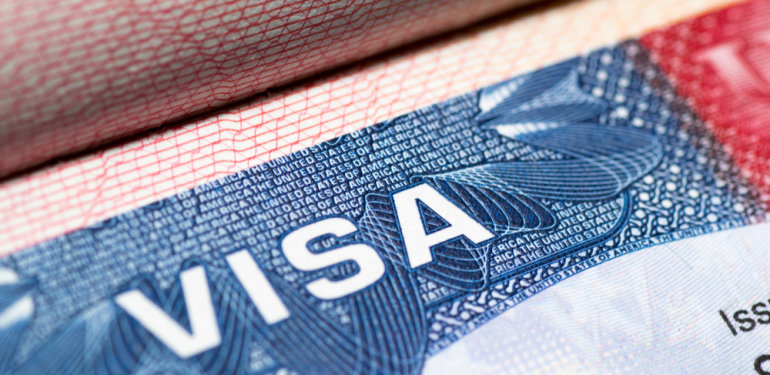An O-1 visa is a non-immigrant employment-based visa category for individuals with extraordinary ability or achievement in specific fields such as the arts, sciences, education, business, or athletics. This visa is designed for foreign nationals who have demonstrated a high level of expertise and recognition in their respective fields and wish to come to the United States to work or perform temporarily.
There are Two Main Types of O-1 Visas:
- O-1A Visa: This category is for individuals with extraordinary ability in the fields of science, education, business, or athletics.
- O-1B Visa: This category is for individuals with extraordinary ability in the arts, including but not limited to music, film, television, theater, and other performing arts.
To qualify for an O-1 visa, applicants must provide substantial evidence of their extraordinary ability or achievement, which often includes awards, recognition, publications, performances, or other notable accomplishments in their field. Typically, applicants also need a job offer from a U.S. employer or entity that intends to utilize their skills or talent while they are in the United States.
O-1 visas are typically granted for an initial period of up to three years, with extensions available in one-year increments as long as the individual continues to meet the eligibility criteria. Spouses and dependent children of O-1 visa holders may be eligible for O-3 visas to accompany them to the United States, but they are not authorized to work while in the U.S. unless they obtain a separate work visa or employment authorization.
How to Apply for an O-1 Visa?
- Applying for an O-1 visa can be a complex and detailed process, as it requires demonstrating extraordinary ability or achievement in your field. Here are the general steps to apply for an O-1 visa:
Determine Eligibility:
- You must have extraordinary ability or achievement in your field, either in the arts, sciences, education, business, or athletics.
Find a U.S. Employer or Sponsor:
- You will need a U.S. employer, agent, or sponsor who is willing to petition for your O-1 visa on your behalf. This entity will serve as your petitioner.
Gather Supporting Documentation:
- Collect evidence to demonstrate your extraordinary ability. This may include awards, honors, publications, performances, reviews, and any other relevant documentation that showcases your accomplishments in your field.
Consult With an Immigration Attorney:
- Given the complexity of the O-1 visa application process, it’s highly advisable to work with an experienced immigration attorney who can help you prepare a strong case and navigate the requirements.
File Form I-129, Petition for Nonimmigrant Worker:
- Your U.S. employer or sponsor will file Form I-129, Petition for Nonimmigrant Worker, with the U.S. Citizenship and Immigration Services (USCIS). They will need to include the necessary supporting documents and filing fees.
Pay the Required Fees:
- Pay the appropriate filing fee for Form I-129. The fee can vary based on the specific type of O-1 petition.
Wait for USCIS Processing:
- USCIS will review the petition and may request additional evidence or clarification. Processing times can vary, so it’s important to check the USCIS website for current processing times.
Attend a Visa Interview (if Required):
- Depending on your nationality and other factors, you may be required to attend a visa interview at a U.S. embassy or consulate in your home country. Be prepared to provide documentation supporting your extraordinary ability.
Attend a Medical Examination (if Required):
- Some visa applicants are required to undergo a medical examination by an approved panel physician before their visa interview.
Wait for Visa Approval:
- If your O-1 visa petition is approved, you will receive an approval notice (Form I-797). This notice will be sent to your U.S. employer or sponsor.
Travel to the United States:
- Once you receive your O-1 visa approval notice, you can travel to the United States to begin your employment or performance activities. Be sure to enter the U.S. before the visa’s expiration date.
Maintain O-1 Visa Status:
- While in the U.S., it’s essential to maintain your O-1 visa status by complying with the terms and conditions of your visa, including your employment or performance activities.

What is an EB-1A Visa?
The EB-1A visa, also known as the EB-1A immigrant visa or the EB-1A green card, is a category of employment-based immigrant visa for individuals with extraordinary ability. It is designed for foreign nationals who have achieved a high level of expertise and recognition in their field and wish to become lawful permanent residents (green card holders) of the United States.
To qualify for an EB-1A visa, an applicant must demonstrate extraordinary ability in their specific field, which can be in the arts, sciences, education, business, or athletics. The individual must provide substantial evidence to establish their extraordinary ability, typically through a combination of the following:
- Sustained National or International Acclaim: This can include awards, honors, prizes, or other forms of recognition that are nationally or internationally recognized in the field.
- Documentation of Exceptional Achievements: Evidence of outstanding accomplishments and contributions to the field, such as publications, patents, exhibitions, or significant work in their industry.
- Peer Recognition: Letters of recommendation from experts or peers in the field attesting to the individual’s extraordinary ability and contributions.
- Significant Contributions: Proof that the individual’s work has had a substantial impact in their field.
- Evidence of Work in a Leading or Critical Role: Demonstrating that the individual has played a leading or essential role in a major project or organization.
It’s important to note that the standard for qualifying as having “extraordinary ability” is quite high, and applicants must provide a compelling case to meet the criteria. Additionally, unlike the O-1 visa, which is a non-immigrant visa, the EB-1A is an immigrant visa category, meaning that it leads to permanent residency (green card) in the United States.
The Application Process for the EB-1A visa involves the Following Steps:
- File Form I-140: The applicant, or their U.S. employer or sponsor, must file Form I-140, Immigrant Petition for Alien Worker, with the U.S. Citizenship and Immigration Services (USCIS).
- Pay the Required Fees: Pay the filing fee for Form I-140.
- Wait for USCIS Processing: USCIS will review the petition and may request additional evidence or clarification. Processing times can vary.
- File Form I-485 (Adjustment of Status) or Go Through Consular Processing: Once the Form I-140 is approved, the applicant can either adjust their status to permanent residency by filing Form I-485 if they are already in the United States, or they can go through consular processing at a U.S. embassy or consulate abroad.
- Attend an Interview (if required): Depending on the circumstances, applicants may be required to attend an interview as part of the green card application process.
Wait for Green Card Approval: If the green card application is approved, the applicant becomes a lawful permanent resident of the United States.

